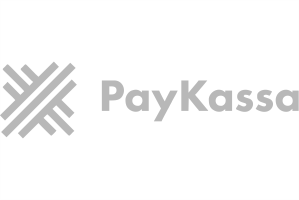| Name of service | Bronze | Silver | Gold | Platinum | Brilliant |
|---|---|---|---|---|---|
 Company name verification and reservation in ASIC ( Australian Securities and Investments Commission ) Verifying the availability and reserving of your preferred company name in the registry (Australian Securities and Investments Commission)
Company name verification and reservation in ASIC ( Australian Securities and Investments Commission ) Verifying the availability and reserving of your preferred company name in the registry (Australian Securities and Investments Commission)
|

|

|

|

|

|
 Company registration in form of LTD including government fees Preparation and submission of all required documents and fees to the relevant government authorities for company registration, ensuring a streamlined process for our clients
Company registration in form of LTD including government fees Preparation and submission of all required documents and fees to the relevant government authorities for company registration, ensuring a streamlined process for our clients
|

|

|

|

|

|
 Certificate of incorporation Provision of international standard certificate of incorporation for your company
Certificate of incorporation Provision of international standard certificate of incorporation for your company
|

|

|

|

|

|
 Memorandum of Association Preparation of the memorandum of association, which defines the procedure for the creation of the company; the authorized capital of the company; the size and nominal value of the shares of the founders, as well as the order of payment
Memorandum of Association Preparation of the memorandum of association, which defines the procedure for the creation of the company; the authorized capital of the company; the size and nominal value of the shares of the founders, as well as the order of payment
|

|

|

|

|

|
 Minutes of the meeting of directors of the company (Referat fra generalforsamling) Document preparation necessary for the legal registration of directors within the company structure
Minutes of the meeting of directors of the company (Referat fra generalforsamling) Document preparation necessary for the legal registration of directors within the company structure
|

|

|

|

|

|
 Director ID for one director A director ID is a unique identifier given to a director who has verified their identity with government approve
Director ID for one director A director ID is a unique identifier given to a director who has verified their identity with government approve
|

|

|

|

|

|
 ABN registration (Australian business number) The main function of an ABN is to ensure that Australian businesses meet their financial obligations. Because many businesses have very similar names, the ABN is a simple yet sure-fire way to identify a specific business and to ensure that it pays all the relevant Australian taxes, including profit, income, GST and PAYG
ABN registration (Australian business number) The main function of an ABN is to ensure that Australian businesses meet their financial obligations. Because many businesses have very similar names, the ABN is a simple yet sure-fire way to identify a specific business and to ensure that it pays all the relevant Australian taxes, including profit, income, GST and PAYG
|

|

|

|

|

|
 GST registration for company (Goods and Services Tax) Goods and Services Tax (GST) is a broad-based tax of 10% on the sale of most goods, services and anything else consumed in Australia
GST registration for company (Goods and Services Tax) Goods and Services Tax (GST) is a broad-based tax of 10% on the sale of most goods, services and anything else consumed in Australia
|

|

|

|

|

|
 Assistance in opening a corporate account in Commonwealth Bank of Australia (CBA), Westpac Banking Corporation (Westpac), National Australia Bank (NAB) Collection, processing and filing of documents required for opening a corporate bank account, including consultation on the choice of appropriate jurisdiction
Assistance in opening a corporate account in Commonwealth Bank of Australia (CBA), Westpac Banking Corporation (Westpac), National Australia Bank (NAB) Collection, processing and filing of documents required for opening a corporate bank account, including consultation on the choice of appropriate jurisdiction
|

|

|

|

|

|
 Apostilled and Translated company documents Apostille certification and consular legalization of documents, depending on the country of operation
Apostilled and Translated company documents Apostille certification and consular legalization of documents, depending on the country of operation
|

|

|

|

|

|
 Local Secretary in the Australia for 1 (one) year Provision of a local secretary for your company. This means we provide you with a local contact person who will ensure communication between you and the authorities, banks or other parties in Australia. The contact person can help you with translations, receiving and forwarding official documents, representing your company and general administrative support. This gives you confidence and convenience in communicating and interacting with government agencies and institutions
Local Secretary in the Australia for 1 (one) year Provision of a local secretary for your company. This means we provide you with a local contact person who will ensure communication between you and the authorities, banks or other parties in Australia. The contact person can help you with translations, receiving and forwarding official documents, representing your company and general administrative support. This gives you confidence and convenience in communicating and interacting with government agencies and institutions
|

|

|

|

|

|
 Local Director in the Australia for 1 (one) year Local directors play a crucial role in ensuring the company's compliance with local laws, regulations, and reporting requirements. Required for company formation in Australia for foreign owner
Local Director in the Australia for 1 (one) year Local directors play a crucial role in ensuring the company's compliance with local laws, regulations, and reporting requirements. Required for company formation in Australia for foreign owner
|

|

|

|

|

|
 Free Consultation We offer a free consultation where you can discuss your needs and questions regarding company registration and management. Our experts will be happy to help you understand the process and provide guidance based on your situation. We are happy to answer your questions and help you make an informed decision about the services you need
Free Consultation We offer a free consultation where you can discuss your needs and questions regarding company registration and management. Our experts will be happy to help you understand the process and provide guidance based on your situation. We are happy to answer your questions and help you make an informed decision about the services you need
|

|

|

|

|

|
|
Total cost
|
1900 USD | 2900 USD | 4900 USD | 5700 USD | 11100 USD |
|
Provision of a legal address for 1 (one) year
|
900 USD | 900 USD | 900 USD | 900 USD | 900 USD |
|
Remote company registration with transfer of authority
|
300 USD | 300 USD | 300 USD | 300 USD | 300 USD |
|
Accounting services
|
150 USD | 150 USD | 150 USD | 150 USD | 150 USD |





















